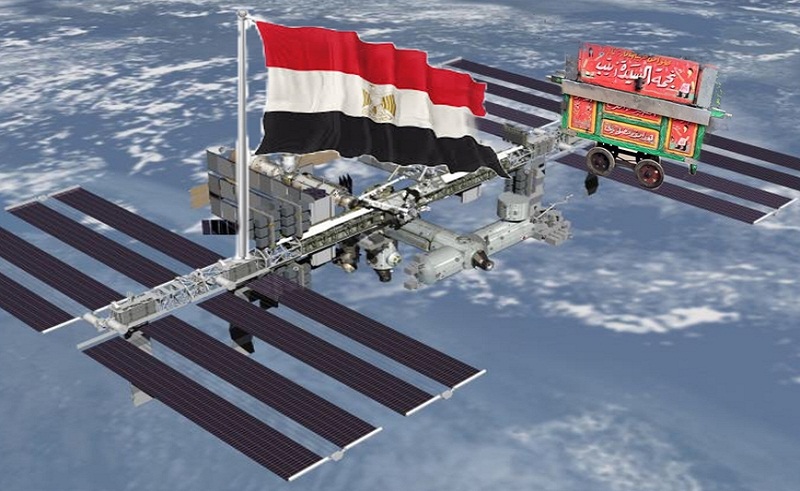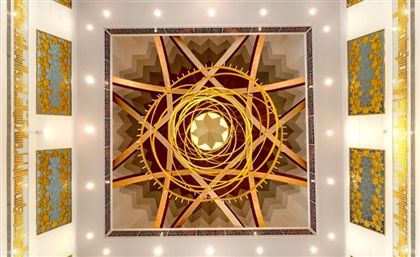Egypt's Final Frontier: What You Need to Know About Our Space Station Initiative
We've got satellites to launch, documents to push through, and space stations to chuck into orbit before we terraform Mars.

Say what you will about the state of Egypt's economy and/or overall strides in development (preferably without the cynical pessimism), but we've been making some pretty stellar leaps and bounds lately, the latest of which seem to be taking more of a galactic turn.
We had written earlier about Egypt's first (almost) entirely locally made satellite built for the purposes of scientific research and national security (blasting fools from orbit would be cool), but we also mentioned parliament's approval of a law allowing the establishment of the country's first space agency. So, what's the most exciting thing to come out of this so far besides research/death-ray satellites? A little something about constructing an Egyptian space station.
Yes, friends, we're getting a space station, in actual space. Parliament finalised the law on Monday, and if all goes well enough, Egypt will enter the annals of history as the third country in the world to have a space station, and the first developing country (an embellished term for third-world) to do so.
Head of the education committee in parliament, Gamal Shiha, stated his views on the urgency of proceeding with the project's plans as quickly as can be in time for the next African summit, as it will discuss heavily the viability of having a space station for all the African countries, stressing the dire spot Egypt would be in if not prepared with an appropriate bid for our station. In addition, the space station will fall under the presidential jurisdiction of command while maintaining administrative, economical, and technical independence, according to parliament.
The space station is a positive step in an increasingly rewarding direction; furthering our scientific knowledge and technological capabilities when it comes to astronomy can mean a massive boost to Egypt's economic and scientific self-sufficiency, growth and national security. In addition, the move has brilliant potential to put Egypt on the map as a contributor and maybe even (this is me being blissfully wishful) a pioneer in the fields of astrophysics and space science. Worst case scenario, we discover some long dormant intergalactic plague and call it a day.
In an effort to perhaps boost confidence in the (very) ambitious initiative and try to garner the attention of pertinent personnel, Minister of Higher Education and Scientific Research Khaled Abdel-Ghaffar raised the point of cancelling the wage cap of the would-be workers who will be operating on the station, receiving support from the Head of Parliament, Ali Abdelal, saying “the wage cap needs reconsideration to help keep the best Egyptians in different fields, and attract our scientists who left to come back to their country.”
With research satellites used to discover all sorts of natural Egyptian resources, a space station to further the country's scientific self-sufficiency and development, and a joint initiative with the rest of Africa to push into the heavens and reap whatever rewards they may hide, it's an exciting time to be alive in Egypt to say the very least.
- Previous Article Egypt's First Dog-Friendly Cafe Opens in Alexandria
- Next Article A Night With The Stars: Chivas' Annual Party
Trending This Week
-
Mar 29, 2025























